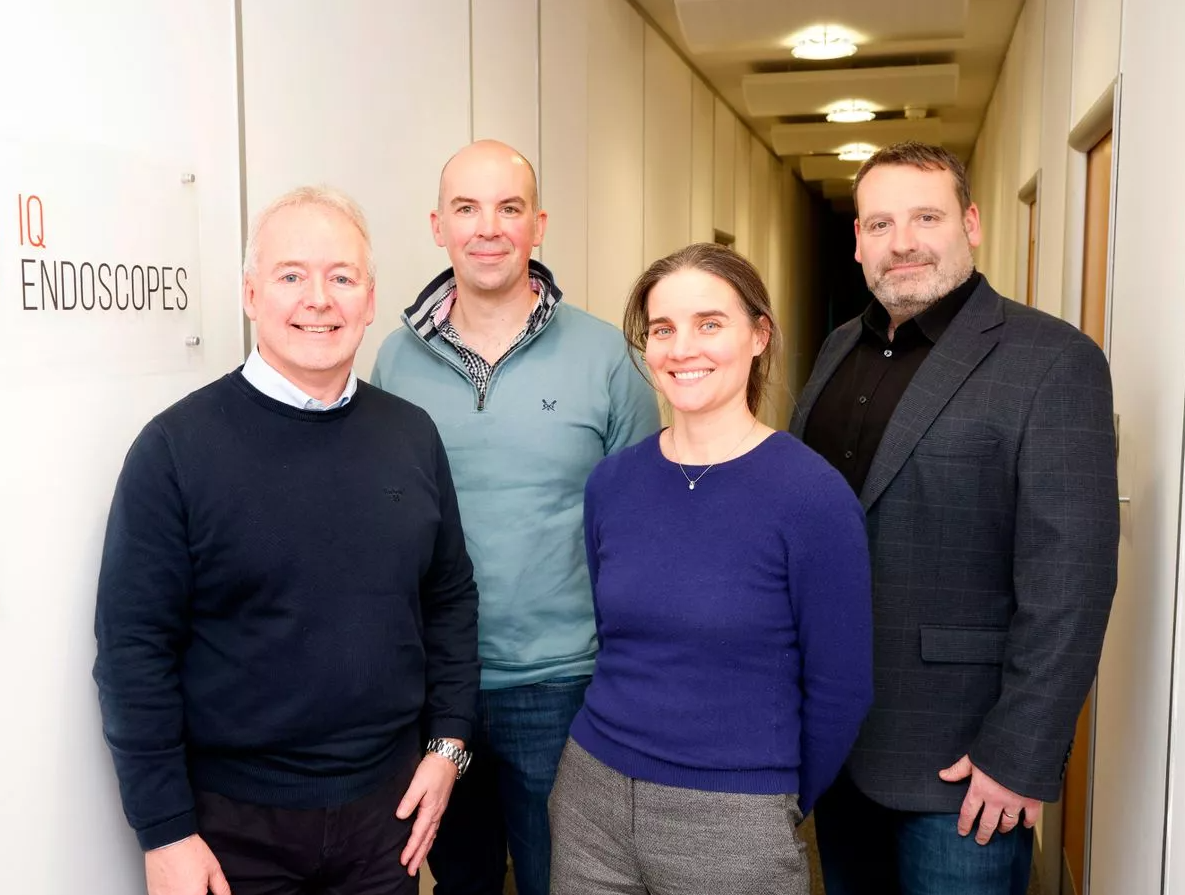IQ Endoscopes progresses to Phase Three of the Endoscopy Challenge
IQ Endoscopes are moving forward to Phase Three of the Endoscopy Challenge, with a budget of £260k for enhanced testing of their prototype. The challenge is funded by the CCR Challenge Fund and led by Cardiff and Vale University Health Board’s (CAV UHB) Shaping Change team.
The waiting list for an endoscopy in Wales sits at 30,000 people with demand growing, resulting in increased waiting times and the associated negative impact on patient outcomes. The challenge was set up to help address this problem alongside a wider programme of work to support health boards to develop sustainable endoscopy services.
Now in the third and final stage of the challenge, Chepstow-based company IQ Endoscopes will refine and test their single-use endoscope as an addition to the reusable endoscopes currently in use.
During Phase Two of the Endoscopy Challenge, IQ Endoscopes collaborated with CEDAR (Centre for Healthcare Evaluation, Device Assessment and Research) to assess the current endoscopy service in Cardiff and Vale UHB. CEDAR identified the most suitable case for their product and clinical setting, evaluated the financial implications, and contributed to developing a sustainability solution for its adoption by the Health Board.
During Phase Three, the company will engage with clinicians to further prove the sustainable acceptance of their single-use flexible endoscope in practice. They will also collaborate with CEDAR again to explore in more detail the potential financial impact on patient, clinical, and health care resource outcomes that could result from introducing the IQ Endoscope in Cardiff and Vale UHB.
Matt Ginn, CEO of IQ Endoscopes commented ‘We have worked incredibly hard during the first two phases of this award to address the requirement for additional endoscopic technology and diagnostic services in Cardiff. In conjunction with the team at Cardiff and Vale we have uncovered and proven some clinical areas where our Single Use Endoscopic technology could deliver quicker diagnosis for patients and huge advantages for clinicians. Furthermore, we have worked very hard to overcome any sustainability or environmental concerns from both clinical and procurement around the use of our technology.’
‘We are going to continue measuring both the clinical and environmental impact at every stage. As we are a fairly young company, we are able to be agile and adapt our approach in accordance to clinical requirements. We want to emphasise that our aim is not for single use endoscopy to replace reuseable technologies, instead we believe that the single use endoscopes will be able to complement current reuseable technologies in their deployment within a health setting. Single use endoscopy can enable additional patients to be diagnosed in settings away from the endoscopy suite, removing potential pressures on reuseable inventory, required decontamination and endoscopy waiting lists.’
Zoe Hilton, Innovation Program Manager, Shaping Change at CAV UHB said: ‘It has been a pleasure working with IQ Endoscopes for the past two years on the CCR Challenge Fund Endoscopy Challenge. IQ has consistently responded to every challenge presented by the endoscopy, sustainability, and value in health teams. They have worked diligently to adapt and overcome these obstacles as they arose, resulting in a product that we believe will meet the needs of the service, provide value, and offer a better experience for our patients. I look forward to this final phase and the opportunities it will bring.’
Rick Delbridge, Professor of Organisational Analysis at Cardiff University and Principal Investigator at the CCR Challenge Fund, said: “We are delighted to see the progress of the Endoscopy Challenge, which demonstrates the success of a collaborative, mission-led approach to innovation. The Challenge Fund is proud to support this valuable work which brings together public sector stakeholders and innovators to address a vital issue in the health system. It’s great to witness new approaches and solutions growing from their initial seeds.”
In its earlier stages, the Endoscopy Challenge also supported Swansea company CanSense, who are developing a blood test for bowel cancer screening. Having secured funding from other sources, they will move to a clinical trial phase of development. Both Cardiff Capital Region and the Endoscopy Challenge team are proud to have supported a part of CanSense’s journey, and very much look forward to seeing them succeed.

